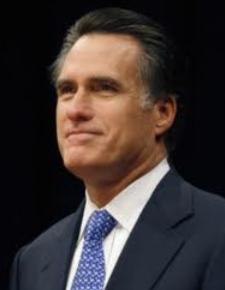 by Michael MacLeod
by Michael MacLeod
Oregon academic blog
Politics Among Friends
What does the emergence of Mitt Romney as a Presidential candidate tell us about the American political story? Regardless of whether or not the Republican ticket wins the November election, the possibility that the nation could elect a Mormon as President has much to tell us about what makes America unique. And there could be profound political implications that stem from these beliefs that we should carefully consider. Here, I’ll focus mainly on the foreign policy dimensions and leave the domestic implications for another post.
In Mormonism, we have a set of beliefs based on revelations given to a 19th century American in upstate New York that has given birth to a religion with millions of adherents. The LDS (Latter Day Saints) Church has, at its core, a very strong sense of American exceptionalism as part of God’s holy plan. As Malise Ruthven assessed recently in the “New York Review of Books,” Mormonism’s founder Joseph Smith had views very similar to Christian fundamentalists raised on literal interpretations of the Book of Revelation, i.e. that the Savior’s return was imminent, presaged by a Great Tribulation and the restoration of Israel. The difference was that Mormons believed then that they were the lost Israelites, and that the Book of Mormon would be a vehicle by which to convert Jews into the Kingdom of God.
Moreover, America (and the Americas) was argued to be not only a land of promise but, according to the Book of Mormon and church leaders since, the world’s most exceptional land that was actually visited by Jesus Himself. The head of the LDS in 1987 said that:
“Our Father in Heaven planned the coming forth of the Founding Fathers and their form of government as the necessary great prologue leading to the restoration of the gospel. Recall what our Savior Jesus Christ said nearly two thousand years ago when He visited this promised land: ‘For it is wisdom in the Father that they should be established in this land, and be set up as a free people by the power of the Father, that these things might come forth’ (3 Ne. 21:4, the Book of Mormon). America, the land of liberty, was to be the Lord’s latter-day base of operations for His restored church … For behold, this is a land which is choice above all other lands; wherefore he that doth possess it shall serve God or shall be swept off; for it is the everlasting decree of God.”
Thus, Mormonism is the perfect form (or offshoot, depending on your views) of Christianity for extreme nationalism. It believes Jesus visited America, that the Garden of Eden was somewhere in Missouri, and that sees the US Constitution as an integral part of the divine order (which Jesus apparently personally foresaw in his appearances in America two millennia ago, and blessed).
Does this have implications for American foreign policy today? It’s hard to say, especially given that there are Mormons on both the left and right (Harry Reid is a Mormon and leader of the Senate Democrats, for example). But what if the possible leader of the free world emerges from a church sect – and personally believes himself – that asserts America alone has divine permission to do what it wants in the wider world, that America is subject to different standards than everyone else, and that geopolitics is about the global supremacy of the modern world’s first divinely ordained nation? At the very least, these views are very symmetrical with those neoconservatives (in the Republican party) who helped push the United States into war with Iraq from 2003-2011.
Might a Romney administration go down the same road? Perhaps a clue comes from Mitt Romney’s views of Iran and his relationship with Israel’s current leader. In June, Romney suggested that an attack on Iran was a question of the very survival for the United States: “we cannot survive a course of action [that] would include a nuclear Iran. We must be willing to take any and all actions.” More critically, he is known to have a close relationship with the current leader of Israel, Benjamin Netanyahu, who the retiring director of Israel’s internal security service Shin Beit criticized earlier this year for making decisions – such as potentially attacking Iran – based on “messianic feelings.” Will a President Romney undertake to attack Iran and forcibly prevent it from acquiring nuclear weapons?
In fact, we don’t know much about Romney’s foreign policy at this point because the 2012 presidential election has been framed by his campaign as almost entirely one focused on domestic policy. Notwithstanding the recent crisis in the Middle East, foreign policy statements by his campaign have been largely platitudes and not very specific about how Romney would conduct his own foreign policy. And because Romney has been exceedingly private about his faith, we don’t really know the extent to which Mormonism and its dogma might specifically impact a potential Romney presidency. But we do know this: nominating a candidate for President – and potentially electing him – who emerges from a religion that explicitly, at its core founding and in its core beliefs, posits that America is not only divinely blessed but indeed an exceptional place with the most important mission to play before the Second Coming, is a revealing turn in American history. While we’ve elected Presidents before accused of being inspired by Christian fundamentalist beliefs of the “end times” – George W Bush was often attacked for this, especially after the invasion of Iraq – having one in office from a sect that was founded specifically on the principle of a divinely-ordained American exceptionalism is, simply, remarkable.
Disclaimer: Articles featured on Oregon Report are the creation, responsibility and opinion of the authoring individual or organization which is featured at the top of every article.

